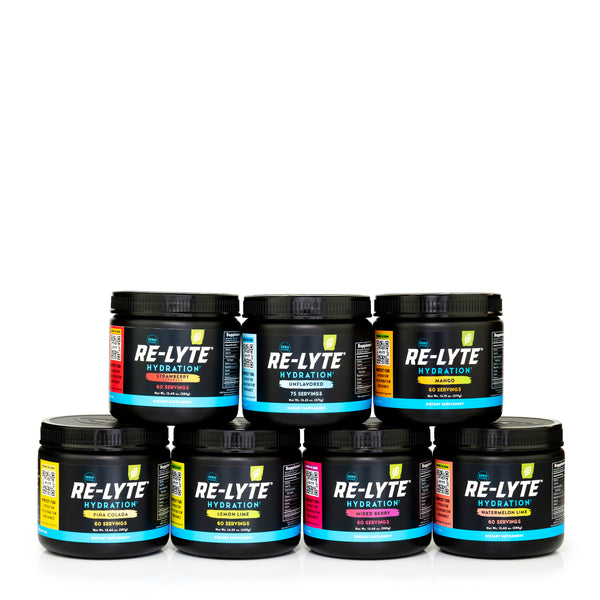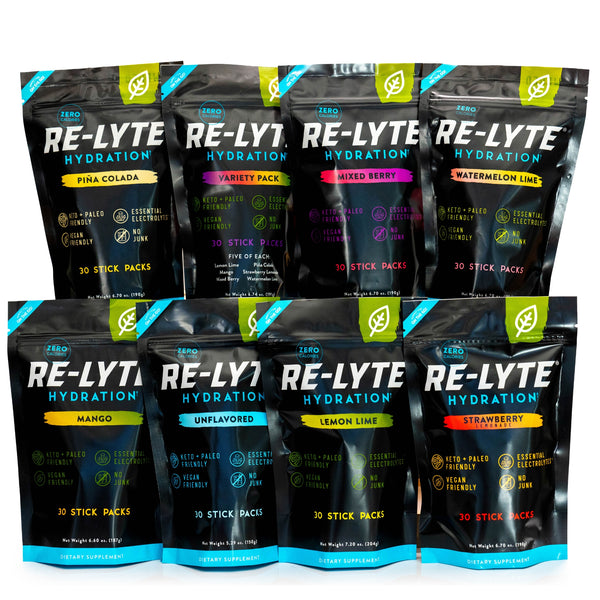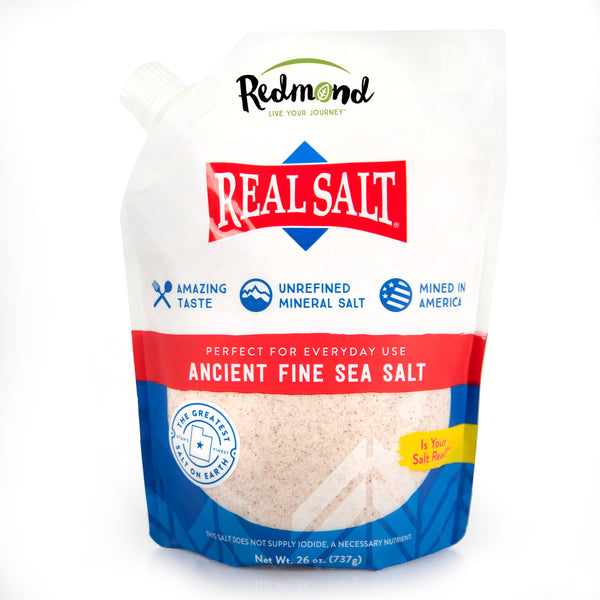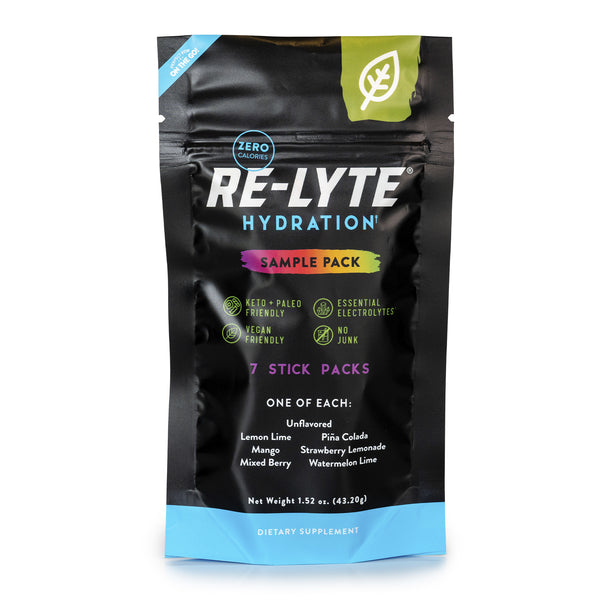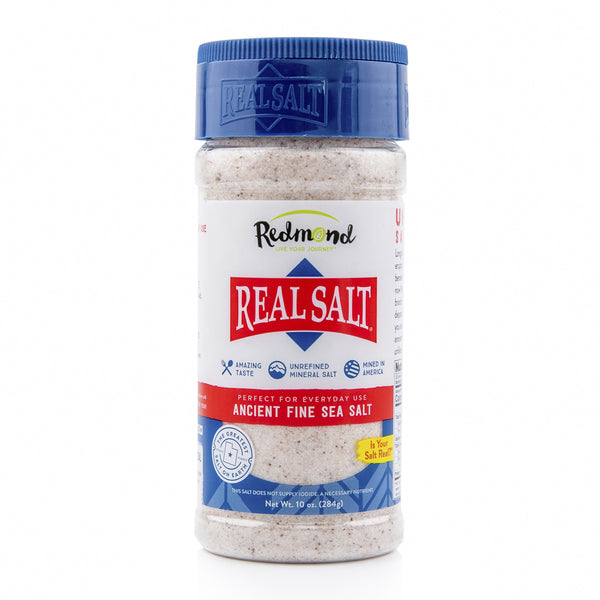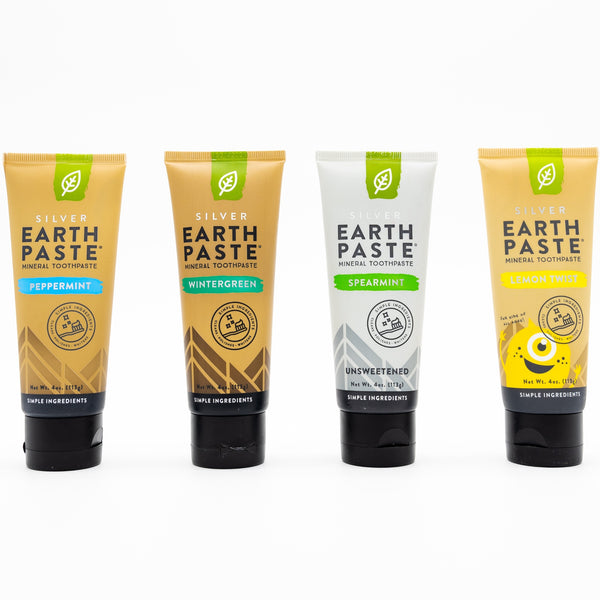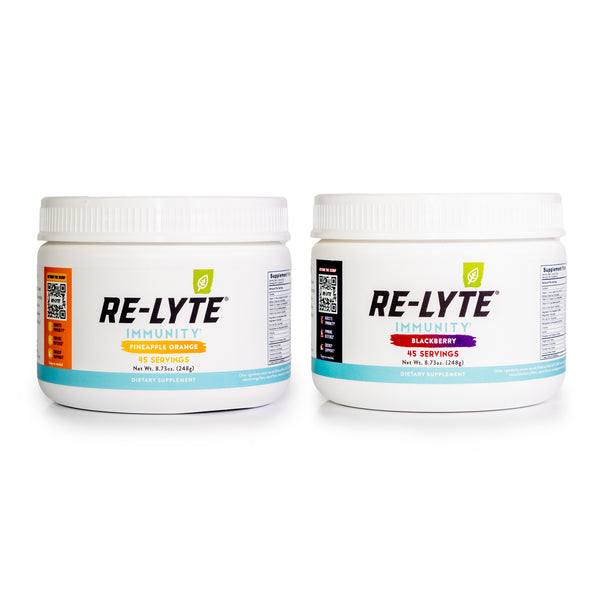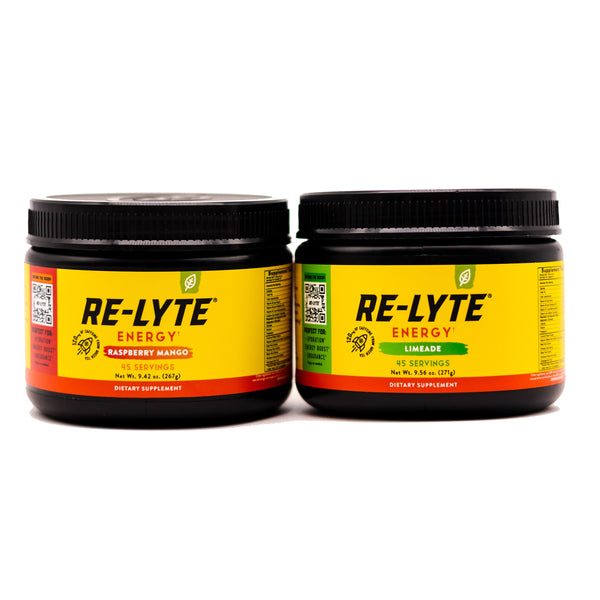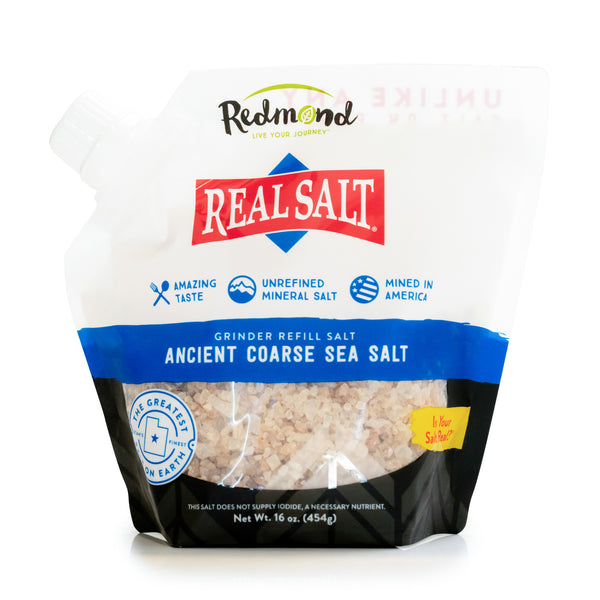Stay Hydrated, Stay Healthy: Essential Hydration Tips for Older Adults
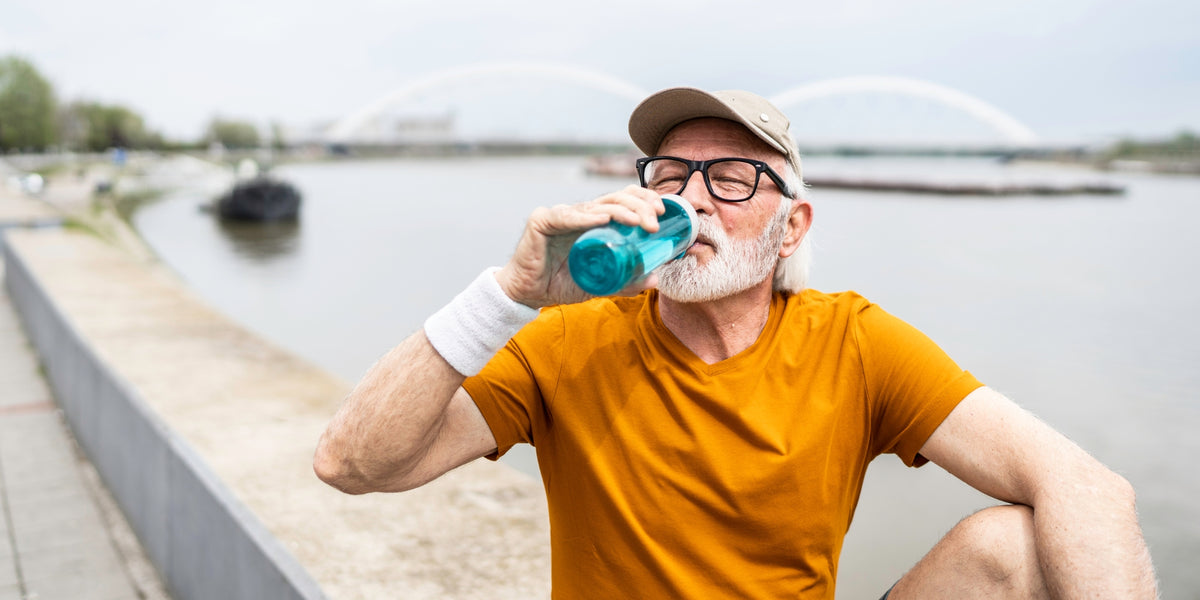
Article at a Glance
- Dehydration is a critical factor in many medical challenges older adults face, with a significant impact on health outcomes.
- As you age, you face unique hydration challenges, including a reduced thirst response, lowered kidney function, medication side effects, reduced taste and swallowing coordination, and the avoidance of fluid intake due to mobility issues and incontinence.
- Some ideas for overcoming these challenges are to choose various beverage options, stay cool in hot weather, eat high-water-content foods, form healthy hydration habits, get regular medical check-ups, and recognize signs of dehydration.
- By understanding the importance of hydration and taking proactive steps, older adults can enjoy healthier golden years.
- Electrolyte drinks, like Re-Lyte Hydration, can help older adults maintain good hydration if they consult with a healthcare professional to ensure that the levels of electrolytes in the drink align with their specific medical conditions and needs.
When considering the challenges that come with age, hydration may not be the first thing that comes to mind. Still, studies show that dehydration is an aggravating factor in many medical challenges older adults face.
Consider this shocking statistic: one study reported that 37% of adults aged 65 and older who were emergency-admitted to the hospital were found to be dehydrated. And those who were dehydrated were more likely to experience poor outcomes. Additionally, a startling 38% of older adults hospitalized due to falls were dehydrated.
It makes sense that dehydration plays an aggravating role in poor health outcomes when you consider how critical water is to many systems of the body, including nutrient absorption, brain function, temperature regulation, joint lubrication, and maintaining healthy skin.
So, why are you more at risk for dehydration as you get older, and what can you do to stay hydrated and healthy?
Why Hydration Gets More Challenging With Age
While most people struggle with good hydration from time to time, as you age, you face several unique challenges that make hydration even more difficult, including:
- Reduced thirst response: When dehydrated, the body releases a hormone to trigger a thirsty response. This response is slowed in older adults, so you’re less able to know when you need to take a drink. As a result, by the time you’re thirsty, you’re often already dehydrated.
- Lowered Kidney Function: As people age, the body is less able to regulate water. Kidney function slows, which causes fluid imbalances in the body. Kidneys also are not able to balance electrolytes as well, which results in more water loss.
- Side Effects of Medication: Some medications can contribute to dehydration. These include diuretics, antihistamines, laxatives, chemotherapy, and some antipsychotic medications. It’s crucial for older adults to be aware of the potential dehydrating side effects of their medications, especially if they have multiple prescriptions.
- Reduced Taste: Age-related changes in taste and smell can cause you to lose your craving for once-loved beverages, resulting in reduced liquid intake. You may also struggle with swallowing coordination as you age, which further discourages drinking.
- Avoidance: Some older adults may reduce their water intake to avoid trips to the bathroom because of mobility challenges or struggles with incontinence. Because of delayed thirst response, they may not realize how dehydrated they are becoming.
7 Hydration Tips for Older Adults
Despite these challenges, there are several strategies that can help you maintain good hydration and, as a result, enjoy improved overall health as you get older.
1. Switch up beverages: To encourage daily drinking, have a variety of beverages on hand. While water is good, studies show that some beverages, including milk, orange juice, and electrolyte drinks, are better at hydrating the body than water. Sometimes, a splash of flavor can make all the difference.
2. Stay cool: It’s more difficult to maintain a constant body temperature as you get older. High temperatures can increase the rate of sweat and water loss. In hot weather, it’s important to have air conditioning and to limit time outside to mornings or evenings when it’s cooler. Beat the heat with a fan, a cool drink, and maybe some ice cream!
3. Choose high-water-content food: Drinking isn’t the only way to get daily hydration. A significant amount of our hydration comes from the food we eat. Not only are fruits and veggies full of nutrients and fiber, but they also top the hydrating charts. Think of watermelon and cucumbers as nature’s water bottles.
4. Make it a habit: Start a daily routine that involves a favorite beverage, fill a water container with a goal to finish drinking it by a set time, or set timed reminders to take a drink. Turn hydration into a game—challenge yourself to finish that water bottle before lunch!
5. Get regular medical check-ups: A trusted healthcare provider can help monitor overall health and hydration status. Providers can give specific recommendations for each individual’s needs, suggest supplements or electrolytes, and help monitor health conditions and medications that may impact hydration. A doctor is your best hydration coach.
6. Watch for signs of dehydration: Some of the most common symptoms are dry mouth, headache, dizziness, darker-colored urine, and constipation. If you notice any of these signs, it’s time to take a hydration break!
7. Family members and caregivers play an important role: Caregivers can play a vital role in helping you stay hydrated if you have mobility or cognitive challenges. Support can make all the difference in staying healthy and hydrated as you age.

Is an Electrolyte Drink Right for You?
An electrolyte drink can be a great way to help with hydration, especially if you’re in a hot climate, are losing fluids because of illness, or are on a medication that disrupts electrolyte balance. However, older adults with certain medical conditions can’t tolerate high levels of electrolytes well. That’s why consulting with a trusted healthcare professional is critical before adding any supplement.
If you decide to use an electrolyte supplement for support, we recommend researching and finding one that aligns with your values and lifestyle.
We created Re-Lyte Hydration for people who want an electrolyte product with a balanced ratio of essential electrolytes without added sugar or artificial ingredients. Take a closer look to see if Re-Lyte Hydration is right for you!
The Takeaway
Good hydration is not just a matter of comfort; it’s a fundamental part of your overall health during the aging process. The challenges can be significant. However, you can overcome these obstacles by understanding the importance of hydration and taking proactive steps like the ones recommended here.
Family members and caregivers also play a critical role in supporting these goals. With awareness and action, you can enjoy your golden years with better overall health. Stay hydrated, and keep living your best life!
Want a deeper dive? Check out these articles from Redmond Life.
Why Should You Drink Electrolytes?
How Much Water Do You Really Need?
Why Am I Dehydrated? The Top 7 Causes
Sources:
- Hydration Status in Older Adults - National Library of Medicine
- Electrolytes in the Againg - National Library of Medicine
- Dehydration in the Elderly - Dietitians on Demand
- Narrative Review of Low-Intake Dehydration in Older Adults - Nutrients
- Milk and Other Surprising Ways to Stay Hydrated - New York Times
- 5 Surprising Ways to Prevent Dehydration in Seniors - Caring Senior Services




